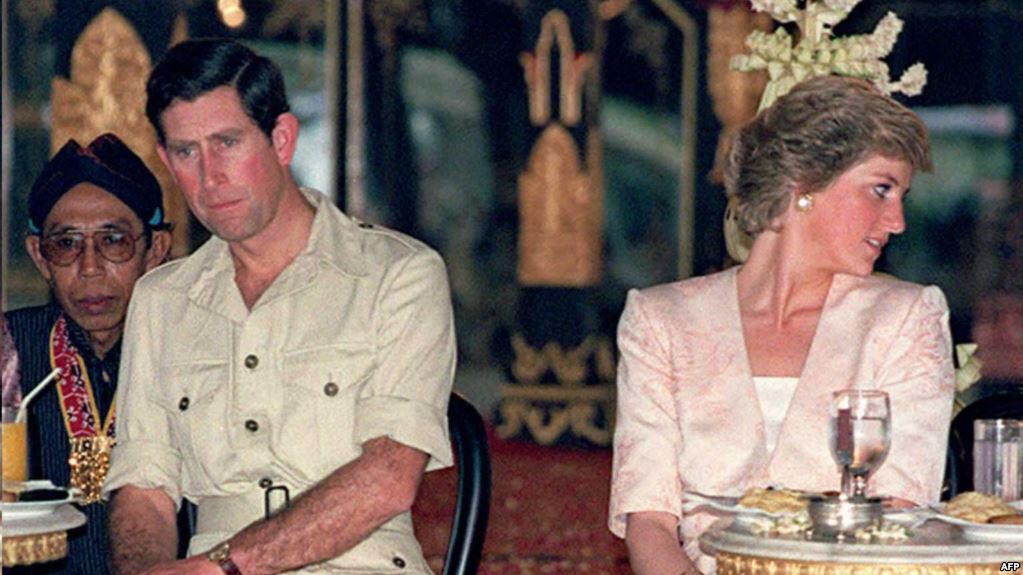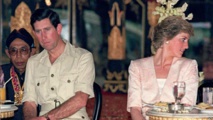Botham's book is based on "reporting from the innermost sanctums of British intelligence and royalty."
It "firmly lays to rest the theory that Diana's death was mere accident, and finally gives the people of Britain the explanation they deserve," according to publishers John Blake.
The rumours and speculation began soon after Diana's death in 1997, fuelled by apparent delays in treating her after the high-speed crash in a tunnel in Paris, and by official secrecy surrounding the case.
Diana's relationship with Dodi al-Fayed, who died with her in the crash, had recently become public knowledge. Al-Fayed was the flamboyant son of Mohamed al-Fayed, a super-rich Egyptian-born businessman who moved in elite British circles and owned the famous London store Harrods.
Al-Fayed senior led the conspiracy claims, alleging that the royal family wanted to prevent Diana from marrying his son, partly because of his Muslim background.
The couple had been about to announce their engagement, al-Fayed said, also claiming that Diana was pregnant at the time of her death.
The sole survivor of the four people in the car, bodyguard Trevor Rees-Jones, suffered serious head injuries and said he could not remember details of events before the crash. The French driver, Henri Paul, and Dodi al-Fayed both died instantly.
Formal inquests in Britain and France continued for more than a decade, but eventually they dismissed the most sensational allegations.
"If ever there was a case that has generated rumour and suspicion, and indeed it has done so on an international scale, surely this is it," Lord Justice Scott, who oversaw the British inquest, commented near the end of proceedings in 2008.
A jury issued a verdict of "unlawful killing" in 2008 following the inquest, highlighting gross negligence by driver Henri Paul and by paparazzi who were pursuing the car at high speed. It said the lack of operational seatbelts and alcohol consumed by Paul were contributory factors.
Hasnat Khan, a heart surgeon whose two-year relationship with Diana had ended earlier in 1997, told a separate Operation Paget inquiry by London's Metropolitan Police that he found "no evidence that anyone was opposed to his relationship with the Princess of Wales (Diana) other than her own mother."
The report concluded that Diana had "explored the possibility of an inter-faith marriage" to Khan, but it said its evidence suggested she had not intended to marry al-Fayed and did not believe she was pregnant.
Khan said Diana had told him in December 1995 that she had changed her car because "the brakes had been tampered with" on her previous vehicle, while other witnesses said she had concerns for her safety.
The inquests did not satisfy the doubters. Mohamed al-Fayed bankrolled the 2011 documentary film "Unlawful killing," directed by British actor and comedian Keith Allen, which included claims that the royal family had wanted Diana "consigned to a mental institution."
Writing in The Guardian on the film's ban in Britain, after the makers rejected dozens of proposed cuts, Allen alleged that many "significant witnesses" were not called or declined to speak at the inquest into Diana's death. He accused the British establishment, including the media, of "quietly suppressing uncomfortable evidence."
Michael Cole, a former journalist who was Mohamed al-Fayed's public relations adviser for many years before and after 1997, has written a new book, "Diana and Dodi: The truth."
Cole describes his feeling in 1997 that many events following the crash "seemed strange."
"He sensed a cover-up, with the authorities on both sides of the Channel anxious to write off the deaths of the world's most celebrated woman and her lover as accidental," publishers Biteback said.
Yet Biteback and Cole withdrew the book just two weeks before its scheduled publication, citing "an abrupt change of mind" by Mohamed al-Fayed, and leaving another void for conspiracy theorists to fill.
------------------------------------------------------------------------------------------------------------
It "firmly lays to rest the theory that Diana's death was mere accident, and finally gives the people of Britain the explanation they deserve," according to publishers John Blake.
The rumours and speculation began soon after Diana's death in 1997, fuelled by apparent delays in treating her after the high-speed crash in a tunnel in Paris, and by official secrecy surrounding the case.
Diana's relationship with Dodi al-Fayed, who died with her in the crash, had recently become public knowledge. Al-Fayed was the flamboyant son of Mohamed al-Fayed, a super-rich Egyptian-born businessman who moved in elite British circles and owned the famous London store Harrods.
Al-Fayed senior led the conspiracy claims, alleging that the royal family wanted to prevent Diana from marrying his son, partly because of his Muslim background.
The couple had been about to announce their engagement, al-Fayed said, also claiming that Diana was pregnant at the time of her death.
The sole survivor of the four people in the car, bodyguard Trevor Rees-Jones, suffered serious head injuries and said he could not remember details of events before the crash. The French driver, Henri Paul, and Dodi al-Fayed both died instantly.
Formal inquests in Britain and France continued for more than a decade, but eventually they dismissed the most sensational allegations.
"If ever there was a case that has generated rumour and suspicion, and indeed it has done so on an international scale, surely this is it," Lord Justice Scott, who oversaw the British inquest, commented near the end of proceedings in 2008.
A jury issued a verdict of "unlawful killing" in 2008 following the inquest, highlighting gross negligence by driver Henri Paul and by paparazzi who were pursuing the car at high speed. It said the lack of operational seatbelts and alcohol consumed by Paul were contributory factors.
Hasnat Khan, a heart surgeon whose two-year relationship with Diana had ended earlier in 1997, told a separate Operation Paget inquiry by London's Metropolitan Police that he found "no evidence that anyone was opposed to his relationship with the Princess of Wales (Diana) other than her own mother."
The report concluded that Diana had "explored the possibility of an inter-faith marriage" to Khan, but it said its evidence suggested she had not intended to marry al-Fayed and did not believe she was pregnant.
Khan said Diana had told him in December 1995 that she had changed her car because "the brakes had been tampered with" on her previous vehicle, while other witnesses said she had concerns for her safety.
The inquests did not satisfy the doubters. Mohamed al-Fayed bankrolled the 2011 documentary film "Unlawful killing," directed by British actor and comedian Keith Allen, which included claims that the royal family had wanted Diana "consigned to a mental institution."
Writing in The Guardian on the film's ban in Britain, after the makers rejected dozens of proposed cuts, Allen alleged that many "significant witnesses" were not called or declined to speak at the inquest into Diana's death. He accused the British establishment, including the media, of "quietly suppressing uncomfortable evidence."
Michael Cole, a former journalist who was Mohamed al-Fayed's public relations adviser for many years before and after 1997, has written a new book, "Diana and Dodi: The truth."
Cole describes his feeling in 1997 that many events following the crash "seemed strange."
"He sensed a cover-up, with the authorities on both sides of the Channel anxious to write off the deaths of the world's most celebrated woman and her lover as accidental," publishers Biteback said.
Yet Biteback and Cole withdrew the book just two weeks before its scheduled publication, citing "an abrupt change of mind" by Mohamed al-Fayed, and leaving another void for conspiracy theorists to fill.
------------------------------------------------------------------------------------------------------------









 Home
Home Politics
Politics











